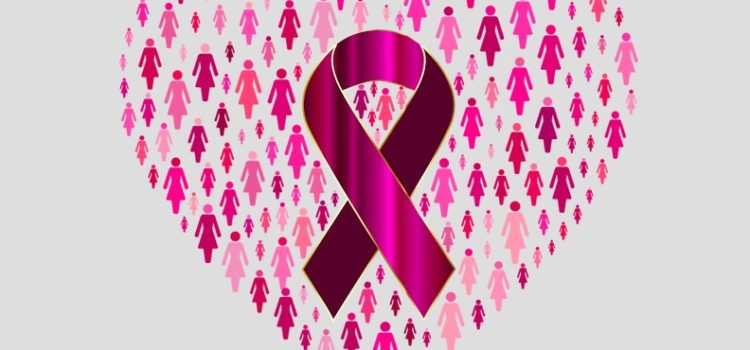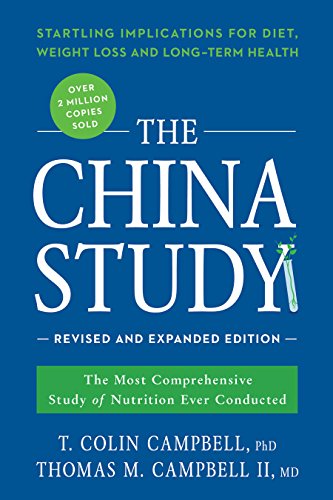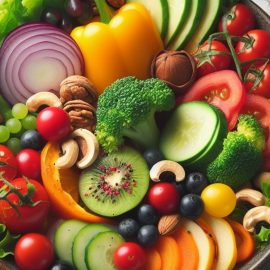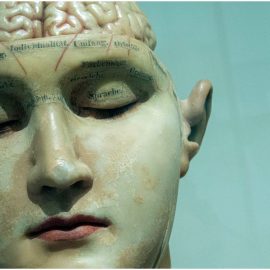

This article is an excerpt from the Shortform summary of "The China Study" by Colin Campbell. Shortform has the world's best summaries of books you should be reading.
Like this article? Sign up for a free trial here .
About 12% of American women will develop breast cancer in their lifetimes. Do you know the risk factors for breast cancer?
There are 5 main risk factors, detailed below. Surprisingly, the consumption of animal foods is linked to more than one of them. We’ll cover the risk factors and discuss how animal products are related to breast cancer risk.
Risk Factors for Breast Cancer
1. High Blood Cholesterol
The first risk factor for breast cancer is high cholesterol. The higher your blood cholesterol levels, the greater your breast cancer risk. Both dietary fat (found in greater quantities in animal foods than in plant foods) and animal proteins have been shown to increase cholesterol.
2. Prolonged Exposure to Female Hormones
The second risk factor for breast cancer is prolonged exposure to certain hormones. These hormones include estrogen and progesterone. The earlier a female starts menstruating, and the later she starts the process of menopause, the greater her exposure to estrogen over her lifetime.
Animal foods seem to play a part in increasing breast cancer risk at every stage of a woman’s life:
- Adolescence: In girls, there’s an association between eating high-fat diets and starting menstruation earlier. Because animal foods are often high in fat, they may contribute to early menstruation.
- Adulthood: High-fat diets have also been shown to increase estrogen levels during reproductive years.
- Menopause: Diets rich in animal foods are associated with delays in menopause of three to four years. These additional years of estrogen exposure increase breast cancer risk.
3. Hormone Replacement Therapy
Another risk factor for breast cancer is the use of hormone replacement therapy (HRT). Many women take HRT during menopause to protect their bones, prevent heart disease, and decrease menopause symptoms.
However, HRT has been shown to increase your breast cancer risk by 26-30%. Further, while HRT does seem to help protect against bone fractures and colorectal cancer in later life, some studies suggest it increases your risk for cardiovascular disease.
4. Genes
Your genes are another risk factor for breast cancer, but probably not as much of a factor as the media tells us. Although the “breast cancer genes,” BRCA-1 and BRCA-2, have received a lot of attention, studies find that less than 3% of breast cancer cases are genetic. Additionally, only 0.2% of the population carries these genes, so only a small percentage of breast cancer cases can be attributed to them.
The fact that half of the women who carry BRCA-1 or BRCA-2 never get breast cancer also demonstrates that your genes are not your destiny.
It’s not that the discovery of these genes wasn’t important. But we need to pay attention to not only who carries these genes but also what causes them to be expressed. A diet high in animal fats and proteins has been shown to act as a trigger for both carcinogens and cancer-causing genes.
5. Environmental Chemicals
Environmental chemicals pose another risk. There are different types of carcinogenic chemicals:
Carcinogen Type #1: We can’t metabolize these carcinogens, so they stay in our bodies, accumulating in body fat and the breast milk of lactating mothers. These carcinogens include dioxins and PCBs. 90-95% of exposure to these chemicals comes from eating animal foods.
Carcinogen Type #2: We can metabolize these carcinogens, but the process of metabolism creates dangerous byproducts that alter our DNA. These carcinogens, PAHs, come from car exhaust, tobacco smoke, smokestacks, and some petroleum products.
Animal foods can accelerate the rate at which PAHs bind to DNA and cause cancer. Nutrition can also alter the toxicity of certain carcinogens.
Knowing the 5 risk factors for breast cancer may help you find ways to lower your breast cancer risk. Decreasing the amount of animal food you eat may be part of that process.
———End of Preview———

Like what you just read? Read the rest of the world's best summary of "The China Study" at Shortform . Learn the book's critical concepts in 20 minutes or less .
Here's what you'll find in our full The China Study summary :
- Why animal proteins (meat, milk) might cause cancer, diabetes, and other diseases
- Why the medical institution is structured to hide the truth about disease and food
- The precise diet you'll need to eat to live longer and feel happier






